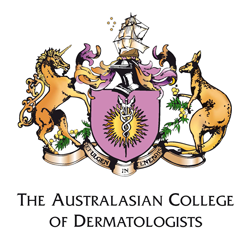Latest skin science revealed at international conference
Twenty thousand of the world’s top dermatologists met in San Diego in March for the 70th annual scientific meeting of the American Academy of Dermatology. Dr Keng-Ee Thai from North Shore Associates in Dermatology attended the event and here shares some of the outcomes of the gathering — many of which address common, frustrating skin diseases.
Link between eczema and peanut allergy
T he results of a study revealed at the conference have proven a link between atopic eczema peanut sensitivity.
“Many atopic children with a certain gene mutation (filaggrin), who consume peanuts, have been shown to have a higher chance of developing a peanut allergy,” said Dr Thai. “However the link between food allergies and atopic eczema is still very unclear. While kids with eczema, asthma or hayfever are more likely to develop food allergies, consuming those foods does not necessarily make the eczema worse.”
“Unfortunately, a positive skin prick test does not necessarily indicate a food allergy, therefore elimination of those foods does not always make a child’s eczema improve. Parents who suspect a food allergy should consult their child’s paediatrician or dermatologist to discuss further diagnosis before any sort of elimination diet.”
Despite a more intimate understanding of the causes of atopic eczema, recommended treatment has not changed. It is still important to moisturise on a regular basis, with topical cortisones used short term for acute flairs. Pimecrolimus or Elidel are alternatives to cortisols for some cases and have been shown to be as safe without any steroid side effects.
PCOS screening in acne treatment
Many women suffer with acne well into their adulthood. This form of cyclical acne is closely linked with polycystic ovarian syndrome (PCOS), a complex collection of problems including irregular periods, excess facial and body hair, acne and infertility.
“Recent research, discussed in San Diego has led to the recommendation that PCOS screening be adopted as part of a comprehensive management plan for women with this acne,” said Dr Thai. “This type of acne need not be inhibiting — hormonal treatment is available, as is management for the other associations. Proper diagnosis and management is vital and really can make a huge difference for those affected.”
“Diagnosis is importance, not just because of the unsightly manifestation of pimples and excess hair, but also because it has been linked to diabetes, obesity and cardiovascular diseases.”
New treatment for premalignant sun spots
An exciting recent development is the release of a new treatment for premalignant sun spots: ingenol mebutate. Going under the trade name Picato (R), it is designed for the treatment of actinic keratosis over a broad area.
“Three applications over three days is all that is required to remove more than 50% of sun spots,” said Dr Thai. “Treatment using Picato is dramatically faster than Efudix cream (R) which can take three to four weeks to complete, and less painful than liquid nitrogen spraying.”
“The available studies and data supports this new medication as fast, safe, non-invasive and extremely effective. I am planning to introduce it into my practice later this year when it is released into the Australian market.”
Simple scalp solutions
An itchy scalp commonly accompanies many different scalp disorders. While most of the treatments discussed in San Diego involved the prescription of various neurotropic drugs, Dr Thai claims there are simple things patients can do to reduce their itchy scalp.
“As we age, there is decreased oil (sebum) production from the oil glands from the scalp. This leads to dryness and thus itch and irritation. An anti dandruff shampoo that is low pH, used frequently, is a good regular preventative. Examples are Neutrogena’s T/sal or T/gel shampoos. A good conditioner or leave-in oil product can also give back the missing moisture,” said Dr Thai. “My own concoction of menthol 0.5% in olive oil has been used with success as a leave-in product by many of my patients. Various other specialised agents such as capciasin cream and oral anticonvulsants may be used. A script is required, so do speak to your doctor or dermatologist.”
Early detection still key in skin cancer treatment
Skin cancers always feature in dermatology conferences and the San Diego meeting was no exception. Much data was presented for melanomas, confirming that early detection and excision is still the most effective treatment.
Dr Thai states that various new drugs are available for the treatment of metastatic melanoma, but these are only suitable for certain patients whose melanoma have a specific gene mutation. All the data presented at the conference, he said, simply reinforces the current practice of early detection and excision. He urges all Caucasian Australians to see their family doctor or dermatologist for an annual skin examination.
Despite many years of ongoing research, the use of the sentinel lymph node biopsy remains controversial.
“This is a special surgical test where dyes are used to identify lymph glands that may contain melanoma cells. If found, then the entire set of glands in that region is surgically removed, with the presumption that this would cure the patient of the spreading melanoma. Unfortunately, survival rates of patients who have the procedure and those who don’t are similar, meaning that the sentinel node biopsy is not useful. This test is used in Australia for those with relatively thick melanomas, so patients would be wise to discuss the procedure and its benefits before consenting to it.”
New treatment for basal cell carcinoma
Basal cell carcinoma is the most common skin cancer diagnosed in Australia. Up to 60% of Australians will have at least one diagnosed in their lifetime. Treatment in most cases is by surgery, while more superficial tumours can be treated by Aldara (R) cream or photodynamic therapy.
“There is now a new treatment for patients with very aggressive or metastatic disease: vismodegib,” reports Dr Thai. “This is a complex biological agent that inhibits the hedgehog pathway, a genetic pathway that is overactive in BCCs controlling to cell development and replication. Most patients would never need this new pill, but it would be an important treatment for those whose tumours are not operable. While Vismodegib is not currently available in Australia, I will be interested to follow its introduction and use in other countries.”
Should any of the above topics be of interest to you, do discuss it with your local doctor or dermatologist.




